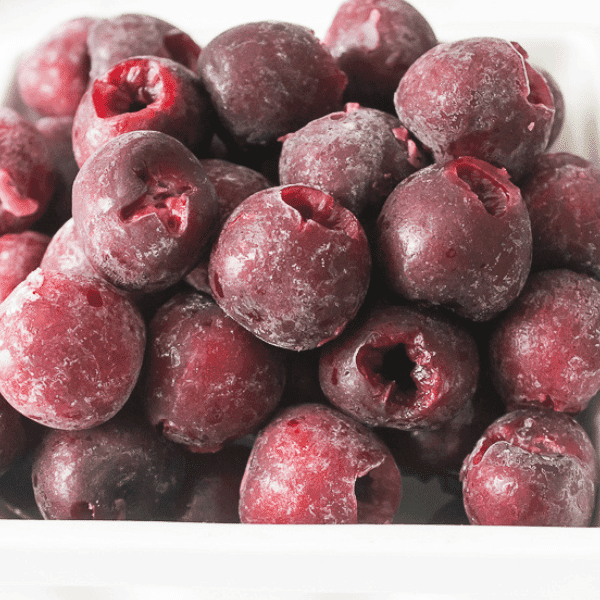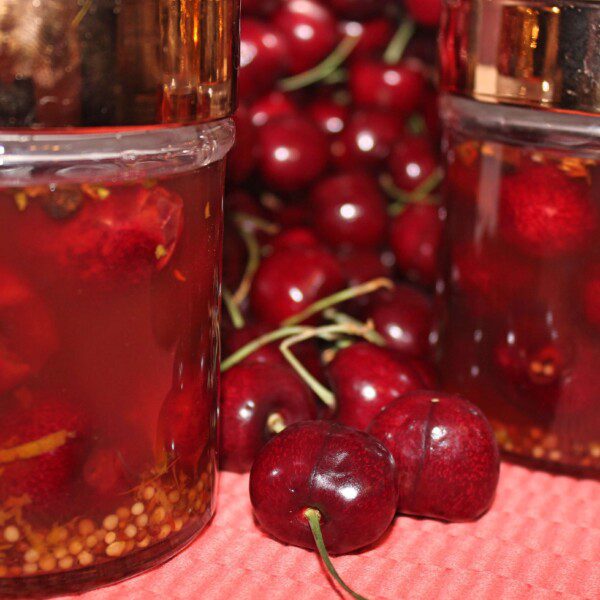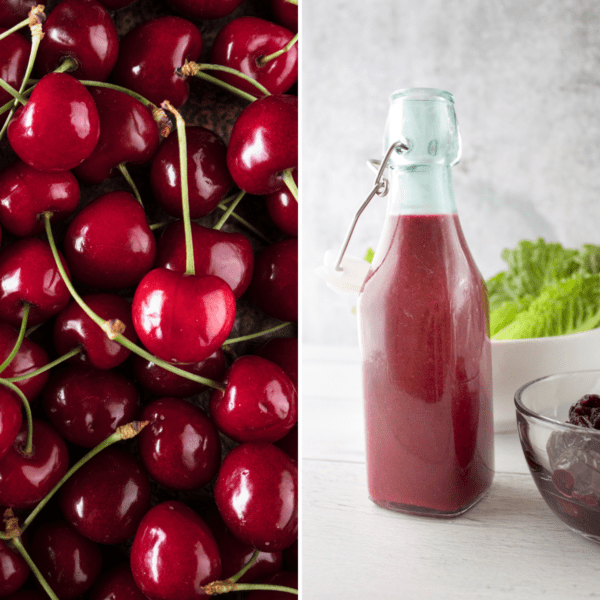How to Select Cherries
- Sweet, red cherries: look for firm cherries that have a deep red color.
- Rainier cherries: are red and yellow and will be less firm than red cherries. A pink hue signals more sun exposure, meaning a sweeter flavor.
- Avoid cherries that are shriveled, wrinkled, or soft.
When are Cherries in Season?
The cherry season varies depending on the type of cherry and the location. In general, sweet cherries are in season from late May to early August, while tart cherries are in season from late June to mid-July. The exact timing can depend on the specific variety and the climate. Cherry season is relatively short, so they should be eaten or preserved soon after they are picked.
Varieties of Cherries
Cherries are a delicious fruit grown prominently in Michigan and the Northeast US. There are over 1000 varieties of cherries in the US. The most popular varieties of cherries that you’ll typically find at the grocery store or farmer’s market include:
- Bing: This is the most popular sweet cherry variety and is known for its large, dark red fruit and sweet, juicy flavor.
- Rainier: Another sweet cherry variety has a yellow and red color and is known for its fruity flavor and firm texture.
- Lapin: This is a sweet cherry variety with a dark red color. It has a juicy flavor and large size.
- Lambert: A sweet cherry variety that has a dark red color and is known for its sweet, juicy flavor and firm texture.
- Montmorency: This is the most popular tart cherry variety and is known for its bright red color and slightly sour, tangy flavor.
Keep in mind that the varieties of cherries available may vary depending on the location and that new varieties are constantly being developed and introduced.
Cherries Nutrition Facts & Benefits
A delicious fruit, cherries have many health benefits:
Nutritional Facts
Serving size: 1 cup of cherries
Approximate 97 calories
- 0.5 grams of fat
- 2 grams of protein
- 25 grams of carbohydrates
- 18 grams of natural sugar
- 3 grams of fiber
Cherries also contain vitamins and minerals such as Vitamin B1, Vitamin B2, Vitamin E, Vitamin B3, Vitamin B5, Vitamin B6, Calcium, Iron, Magnesium, Phosphorus, and Zinc.
Health Benefits
A few main health benefits of cherries:
- Eating cherries can reduce the risk of some chronic inflammatory diseases like diabetes, arthritis, and cardiovascular disease.
- Sweet and tart cherries decrease oxidative stress and inflammation.
- Cherries have anti-inflammatory and antioxidant compounds that may relieve muscle pain from exercise. So eat a cup of cherries after your workout to improve recovery.
How to Store Cherries
- Refrigerator cherries as soon as possible.
- Place them in a plastic bag and store in the refrigerator for up to 10 days.
- To make cherries last longer, do not wash them until right before eating.
- You can stretch cherry season by freezing them. Here are detailed instructions on how to freeze cherries.
How to Prepare Cherries
- Fresh: Eating cherries fresh is a great way to enjoy their natural sweetness and flavor. Simply wash and pit the cherries and enjoy them as a snack, in a dessert, or in salads.
- Baked: Baking cherries bring out their natural sweetness and enhance their flavor. Pit the cherries and toss them into your favorite cherry recipe. Bake according to your recipe directions.
- Canned: Canning cherries is a great way to preserve them for later use. Pit the cherries and pack them into jars. Cover the cherries with sugar syrup or fruit juice, and process the jars in a hot water bath for a certain amount of time, depending on the size of the jar and altitude.
- Frozen: Freezing cherries is a great way to preserve them for later use. Pit the cherries, put them in freezer bags, and freeze them in a single layer. This method of preparation allows you to enjoy cherries even when they are out of season.
How to Serve Cherries
Recipes
Cherry Bruschetta
Recipes
Cherry Bonbon Cookies
Produce 101
How To Freeze Cherries
Recipes
Chocolate Covered Cherries
Recipes
Pickled Cherries
Recipes















